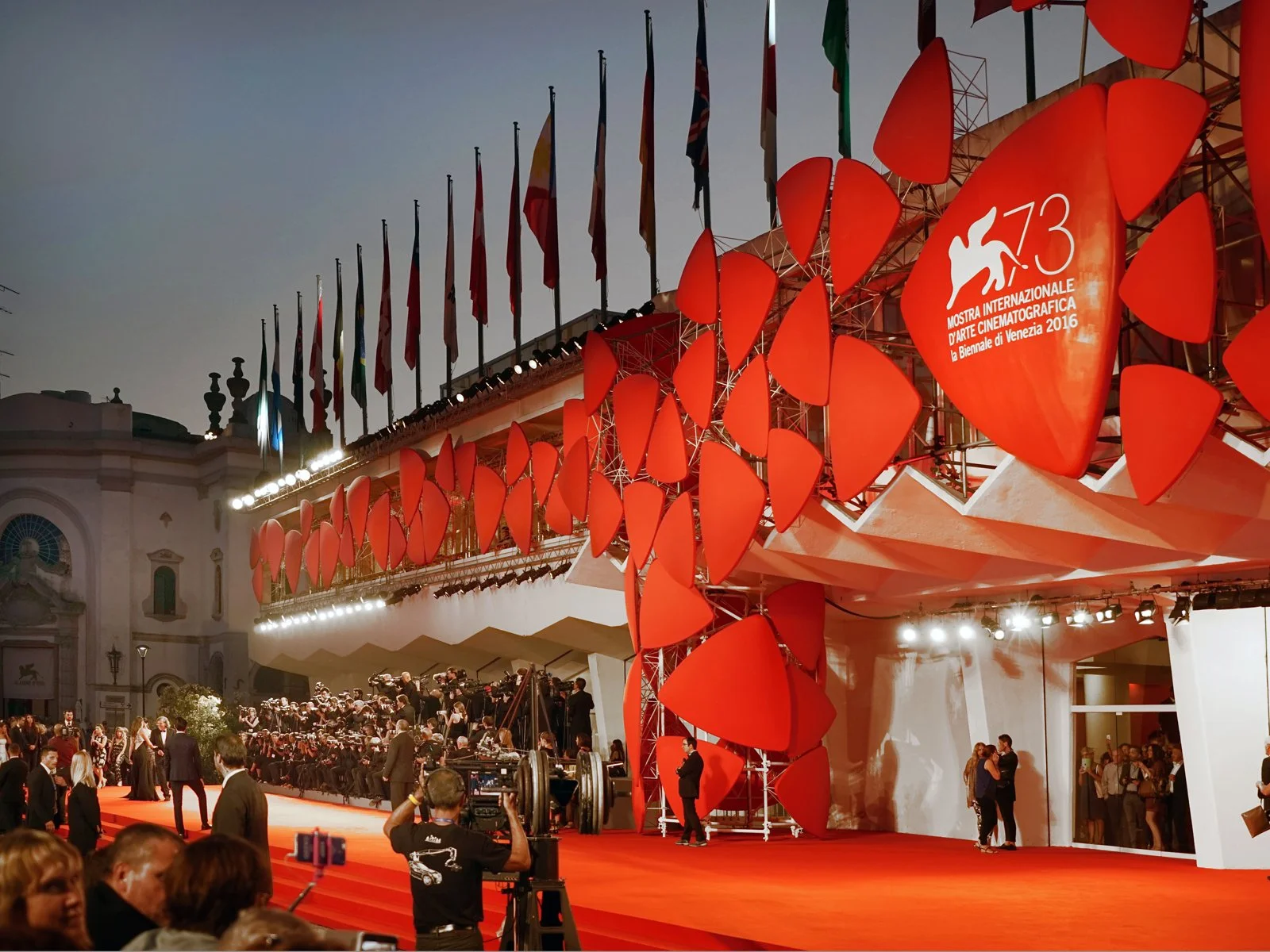The 82nd Venice Film Festival: Taking A Look Into A Celebration of Film and Culture
Actors arrive at the Venice Film Festival. “L'entrée de la Mostra del Cinema (Venise)” by Jean-Pierre Dalbéra, CC BY 2.0
This summer marked the 82nd Venice International Film Festival, recognized globally as one of the oldest and most prestigious international film festivals in history.
The festival serves as an important platform where filmmakers from across the globe showcase their talent to international audiences and provides marketing opportunities, helping films build conversation and excitement ahead of their worldwide releases.
From Aug. 27 to Sept. 6, hundreds of actors, directors and important figures from the film industry gathered at the event, either as spectators or to celebrate and experience new films. Notable actors such as Jacob Elordi, Oscar Isaac and Andrew Garfield joined directors like Guillermo del Toro and Luca Guadagnino to promote their latest projects.
The Venice Film Festival is an excellent platform for international filmmakers to get their names out to a larger audience. Projects were showcased and spanned from a total of 65 countries, including Italy, France, Korea, America, China and more. Alongside this, films are organized into several categories throughout the festival such as “in competition”, “out of competition", Orizzonti, Venezia Spotlight, Venezia Classics and Biennale College Cinema.
Some of the most-awaited and buzzing movies premiered at the festival as part of these categories. The film that won the highest award of the festival, the Golden Lion for Best Film, was awarded to “Father Mother Sister Brother” by Jim Jarmusch, featuring Cate Blanchett, Adam Driver and Vicky Krieps. The film follows an emotionally distant family all around the world in America, Ireland, and France and is divided into three parts. Siblings come together after years apart to restore their relationships with each other and their parents.
Variety dissects the film’s message on parental-child connection beyond parenting: “the surprisingly practicable conclusion that, aside from loving and raising them the best you can, maybe the most rewarding thing you can do for your kids is bequeath to them a bunch of little secrets that hint at the richness of the life you lived out of their sight.”.
Benny Safdie won the Silver Lion for Best Director with his A24 film “The Smashing Machine,” a biopic on UFC legend Mark Kerr, portrayed by Dwayne Johnson. This project was Safdie’s directorial debut without his older brother, Josh Safdie, as the two are known for their collaborations on “Uncut Gems,” “Good Time” and “Daddy Longlegs.”
IndieWire reported Dwayne Johnson’s performance as “out-and-out wonderful, a beady-eyed fusion of body and spirit that osmoses Safdie’s sensibility to deliver what can’t be disputed as the most layered work of the actor’s career.”
Although Guillermo’s adaptation of Mary Shelley’s renowned novel, “Frankenstein,” with Oscar Issac, Jacob Elordi and Mia Goth, did not win any awards, it received a 15-minute standing ovation and is one of the most anticipated movies that premiered at the festival. The film is faithful to the original book while adding elements of horror and Guillermo’s personal style to it.
Not only is the cast compelling, but it is also a visually alluring experience, as Collider calls it “absolutely gorgeous, with massive sets that you want to explore, sprawling landscapes, and incredible costume and makeup work.”
The category, Orizzonti, which means “horizons” in Italian, puts great emphasis on innovative, young filmmakers who may not have as much recognition as other seasoned directors and writers in the industry. Another category that works to highlight smaller artists is the Biennale College Cinema, specifically made to help finance, produce and exhibit these films.
This gives projects that may not have otherwise received much funding a unique opportunity. Not only do the funds allow them to reach larger heights in terms of the films, but the accreditation these promising talents have received after being showcased on a global stage can do wonders for their future careers.
The selected projects in the Biennale College Cinema section are “Lamb of God” directed by Massimiliano Camaiti, "Becoming Human" directed by Polen Ly, “Secret of a Mountain Serpent” directed by Nidhi Saxena and “One Woman One Bra” directed by Vincho Nchogu.
Cinema is not only for entertainment but also to shine a light on real issues happening in the world. One particular film, “The Voice of Hind Rajab,” directed by Kaouther Ben Hania, is a docudrama on the true story of a young girl who was killed while attempting to escape Gaza in January of 2024.
This movie made Venice Film Festival history with the longest standing ovation recorded at 23 to 24 minutes, while also being the shortest of this year’s festival. To add on to this accomplishment, the film also won the Silver Lion Grand Jury Prize.
In connection to the activism seen in “The Voice of Hind Rajab,” a pro-Palestinian protest was organized in Venice on Aug. 30. With attention already on the city due to the film festival, this focus shifted to a wide-scale demonstration of support for Palestine. To further draw awareness to Palestine, members of the film industry recently signed a pledge called “Film Workers for Palestine.”
This pledge states, “we pledge not to screen films, appear at or otherwise work with Israeli film institutions–including festivals, cinemas, broadcasters and production companies–that are implicated in genocide and apartheid against Palestinian people.” Over 3,000 people have signed, including actresses such as Emma Stone, Olivia Colman, Ayo Edebiri and Tilda Swinton, in support of Palestine.
The 82nd Venice Film Festival celebrated people from around the world coming together to enjoy cinema. Young filmmakers made their debuts, established directors introduced new sides of their expertise and political activists pivoted the world’s attention back to the causes they are fighting for. The festival showcased how the world of cinema bridges the gap between cultures, generations and perspectives.
